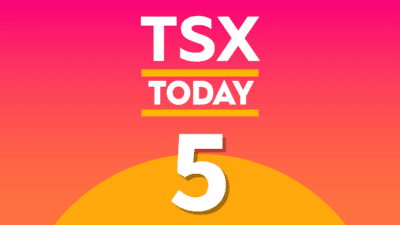In May 2016, I wrote a piece entitled, “Gerry Schwartz or Heather Reisman: Whose Stock Should You Buy Now?”
For those who don’t know who they are, they are a husband and wife team that captain two great Canadian companies. Schwartz runs Onex Corporation (TSX:ONEX), one of Canada’s most successful private equity firms with $32 billion in assets under management; Reisman helms Indigo Books & Music Inc. (TSX:IDG), Canada’s biggest book and gift seller.
Together, they are what gossip columnists would call a “power couple.”
Anyway, it wasn’t an easy choice, but I came to the conclusion that Onex was the better buy primarily because Amazon.com, Inc. would continue to cause trouble for Indigo, hampering its ability to make money.
To Reisman’s credit, which I’ve heartily acknowledged in articles since, she’s turned the company into a retail powerhouse, and that’s pushed its stock higher than $20 — a level it hasn’t seen since 1999.
How high can it fly?
Indigo’s share price hit an all-time high of $35.50 in May 1999. To get there, it’s got to keep delivering same-store sales growth, while continuing to grow profit margins.
I believe it can do both of these things; the question becomes not so much if it hits $35.50, but when.
Interesting note: Over the past five years, Indigo and Onex stocks have achieved almost identical annual total returns — 15.4% for ONEX vs. 15.2% for IDG, suggesting IDG has momentum on its side.
As far as business is concerned, Indigo is pushing ahead with a 29,000-square-foot, two-storey location in Vancouver along Robson Street that will bring back the excitement of a downtown superstore — something that’s been missing since the three-level store at Robson and Howe closed three years ago. It’s expected to open in the fall.
“When we made the decision to leave our well-loved Robson street Chapters store, we promised our customers that as soon as we could, we would be back,” Reisman stated in January. “We are so very excited to reconnect with this community who are among the best and most passionate readers in the country.”
It’s a smart move. I lived in Vancouver when the old store first opened, and it was crazy busy.
In Indigo’s Q3 results, it makes reference to becoming a “cultural department store” for book lovers. Although department stores have a bad name at the moment, it’s an excellent way to describe what Indigo has become as a result of its transformation over the past five years.
It’s not hanging on to the past; it’s bringing a new concept to market that provides Canadians with a curated group of products that are unique to Indigo.
I expect the Vancouver store will be the template for Indigo’s next five years of growth.
The numbers are rock solid
Indigo’s latest holiday shopping season was the strongest on record. Total revenue in the third quarter increased by 8.2% to $433.3 million with a 10.6% increase in adjusted EBITDA to $62.5 million thanks to healthy gains from every category in general merchandise; its toy business was exceptionally strong.
Online revenue, which has been a big part of the company’s turnaround, saw a third-quarter revenue increase of 26.4% to $76.5 million. It now accounts for 17.7% of overall revenue. I see 20% just around the corner.
Lastly, and most importantly, same-store sales increased 7.9% in Q3 2017, which includes online sales. Its superstore same-store sales were up an impressive 4.9%.
Who says brick-and-mortar retail is dead? Indigo sure doesn’t.
Very few Canadian retailers impress me. Indigo is one of them. I believe $35.50 is reachable by the end of 2019.
 Act Fast: 75 Only!
Act Fast: 75 Only!






